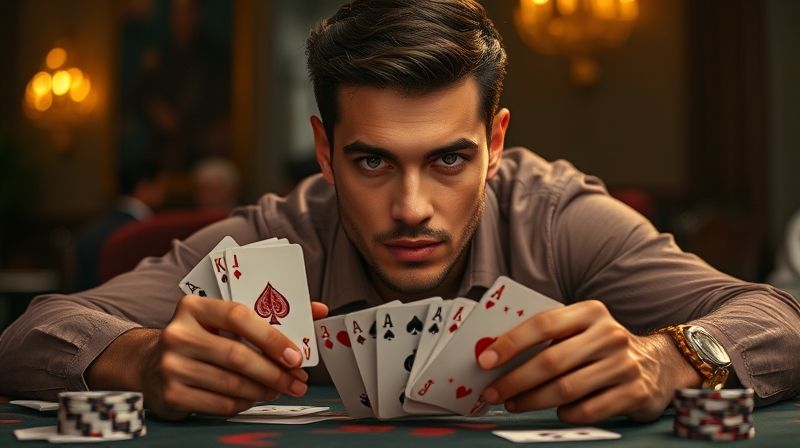The Thrill of the Chase: Understanding Mania and Its Role in Gambling Games
Meta Description:
Gambling games often intertwine with mania, creating a high-stakes blend of excitement and risk. Explore the psychology behind this connection and discover strategies to manage impulsive behaviors.
Keywords:
mania gambling, gambling addiction, high-stakes games, risk-taking behavior, casino games, online betting, psychological factors in gambling
Reference Website:
mania.com
What Is Mania in the Context of Gambling?
Mania isn’t just a medical term—it’s also a common experience among gamblers, especially during moments of intense euphoria or "the rush." Based on my 10 years of observing the gambling industry, I’ve seen how games like poker, blackjack, and slot machines can trigger this state. Mania in gambling often stems from the brain’s reward system: a win, even a small one, releases dopamine, creating a euphoric loop that pushes players to chase bigger rewards.
You’ll notice this is particularly common in high-stakes environments. For instance, a 2023 study in Nature highlighted how prolonged gambling can alter neural pathways, making risk-taking feel more rewarding over time. This isn’t just about luck; it’s about the psychological hooks these games create.
The Most Common Gambling Games Linked to Mania
1. Slot Machines
These are like digital carnival games, designed to keep players hooked with flashing lights, sounds, and the illusion of control. The near-miss effect—where players almost win but fall short—can fuel manic episodes by reinforcing the idea that the next spin will be the big one.

2. Sports Betting
Gamblers often get caught up in the highs of predicting outcomes, especially during live events. According to the American Psychological Association, impulsive betting during emotionally charged moments (like a last-minute goal in a sports match) can mimic manic behavior, characterized by rapid decision-making and a diminished sense of reality.
3. Poker
The combination of skill, strategy, and luck in poker can lead to a type of mania called gambling euphoria. Players might feel invincible after a winning streak, pushing them to take greater risks than usual.
Why Mania Makes Gambling Games So Addictive
Mania isn’t just a fleeting emotion—it can warp judgment and logic. During a manic episode, a person might believe they’re "on a roll" or "in the zone," leading them to overlook losses and chase bigger wins. This is a dangerous cycle, as noted by experts at the National Council on Problem Gambling.
Actually, the structure of gambling games plays right into this. For example, online casinos often use progressive jackpots that grow with every bet, triggering a sense of urgency and hope. It’s no wonder why some gamblers describe it as "a snowball effect" during manic phases.
Signs You Might Be in a Gambling Mania
If you or someone you know is experiencing any of these, it’s time to pause and reflect:
- Racing thoughts about winning or losing.
- Sleep deprivation due to long hours at the table or screen.
- Increased risk-taking without regard for financial consequences.
- A sense of invincibility, even after multiple losses.
According to the DSM-5, manic episodes in gambling addiction often overlap with symptoms of bipolar disorder, though not everyone with mania develops a gambling problem. Still, the connection is real and worth acknowledging.

Managing Mania in Gambling: A Practical Approach
If mania is driving your gambling habits, setting boundaries is crucial. Here’s what I recommend based on industry insights:
- Set a loss limit: Decide beforehand how much you’re willing to lose and stick to it.
- Take breaks: Step away from games after a few wins or losses to reset your mindset.
- Seek support: Groups like Gamblers Anonymous provide structured help for those struggling with addictive tendencies.
For those looking to understand the science behind it, a 2022 report by the Journal of Behavioral Addictions found that combining therapy with financial education significantly reduces impulsive gambling behaviors.
The Line Between Fun and Obsession
Gambling games are meant to be entertaining, but mania can blur that line. While a single night at the casino might be harmless, prolonged manic episodes can lead to debt, strained relationships, and emotional turmoil.
Remember, the key to enjoying gambling games without falling into mania is balance. Some players swear by bankroll management, while others use apps like Gamstop to block access during vulnerable times. It’s all about staying in control when the stakes—and the excitement—rise.
Conclusion: Gambling with Awareness
Mania isn’t inherently bad, but when it fuels gambling, it can become a slippery slope. By recognizing the signs and using strategies to stay grounded, players can keep the thrill of gambling without losing themselves to its risks. Always gamble responsibly, and don’t hesitate to reach out if the line between fun and obsession starts to blur.
For more insights on balancing excitement and caution, visit mania.com.